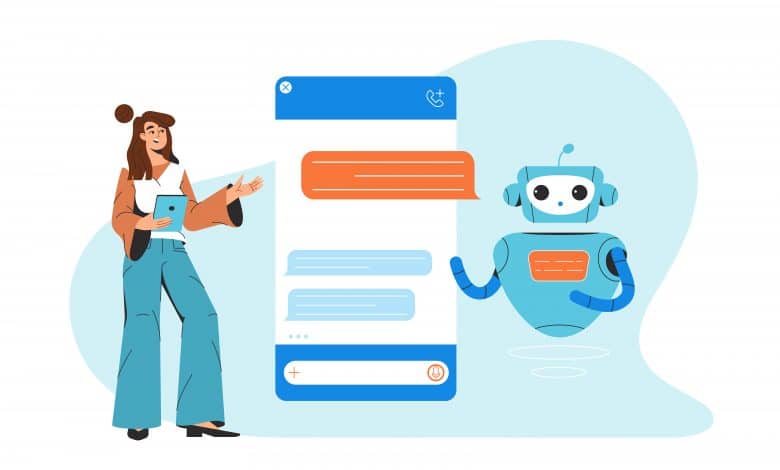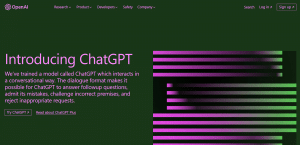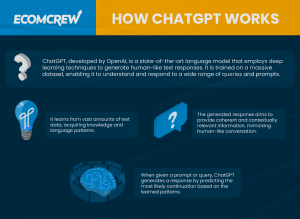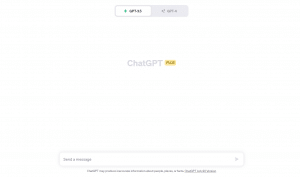OpenAI: A Look Into the Company Behind ChatGPT

First things first: What is OpenAI? We live in a world where the phrase “artificial intelligence” or “AI” has bled from the movie screens and science fiction novels and is now part of day-to-day vocabulary. In such a world, OpenAI, an artificial intelligence (AI) research organization, leads the pack in making significant strides towards once again disrupting the tech and e-commerce industry.
Armed with an innovative development philosophy towards AI as a whole and possessing groundbreaking language models like GPT-3, OpenAI has fundamentally transformed the relationship between business and technology, enhancing not just target market experience, but also the experience of all end-users.
What is OpenAI?
OpenAI was founded in December 2015 with the aim of developing AI technology for the betterment of humanity. The organization was established by household names:
- Elon Musk (Tesla, SpaceX)
- Sam Altman (Loopt, Reddit)
- Greg Brockman
- Ilya Sutskever (AlphaGo)
- John Schulman, and
- Wojciech Zaremba (NVIDIA)
Initially, OpenAI focused on conducting research and publishing findings to promote the global AI community. Over time, the organization's objectives evolved, emphasizing safety, long-term benefits, and responsible AI development.
Clearly, OpenAI's founding team comprises a mix of renowned entrepreneurs, AI researchers, and industry experts.

Elon Musk, known for his involvement in companies like Tesla and SpaceX, played a pivotal role in the initial stages of OpenAI. Sam Altman, a prominent entrepreneur and former president of Y Combinator, joined as the CEO. Other co-founders brought expertise in machine learning, reinforcement learning, and deep learning, further strengthening OpenAI's capabilities.
Altman and Musks concerns regarding the risks and opportunities of AI technology were clear from the very beginning. Summarized, they once called AI “the greatest threat to humanity.” While the thrust of development was initially pointed towards video games and other applications, the breadth and utility of AI soon outgrew this initial framework.

Funding has been critical to OpenAI's success. Initially, the organization received significant financial support from Elon Musk, Sam Altman, and other private investors. Subsequently, OpenAI attracted major investments from organizations such as Khosla Ventures, Microsoft, and Reid Hoffman's charitable foundation.
How ChatGPT Works
ChatGPT, developed by OpenAI, is a state-of-the-art language model that employs deep learning techniques to generate human-like text responses. It is trained on a massive dataset, enabling it to understand and respond to a wide range of queries and prompts. Stated simply, ChatGPT functions as follows:
- It learns from vast amounts of text data, acquiring knowledge and language patterns.
- When given a prompt or query, ChatGPT generates a response by predicting the most likely continuation based on the learned patterns.
- The generated response aims to provide coherent and contextually relevant information, mimicking human-like conversation.
Basically, GPTs are models based on the structure and function of the human brain. With training sourced from an immense pool of original human text, they perform questions including, but not limited to, generating and answering questions.
GPT-3 vs. GPT-4
GPT-3, the third iteration of its kind, is a highly advanced language model renowned for its ability to generate coherent and contextually relevant text.
However, OpenAI has since released GPT-4, which surpasses its predecessor in several aspects. While specific details about GPT-4 are limited, it is expected to exhibit even greater language understanding, improved context sensitivity, and enhanced performance across various tasks.
OpenAI's continuous advancements in language models like GPT-4 hold great promise for the future of AI technology.
OpenAI claims that GPT-4 is 40% more accurate in its replies and 82% less likely to create output that would break the company’s content policy. Further, GPT-4 can now process and understand visual input. This means that images can now be fed into the model in addition to the usual text prompts. GPT-4 is currently available in two platforms: to ChatGPT Plus subscribers and as a standalone product.
OpenAI and E-commerce
OpenAI's technology has had a significant impact on the e-commerce industry, transforming customer interactions, personalized recommendations, and content generation. Here are a few ways in which OpenAI has influenced e-commerce:
- Enhanced Customer Service: ChatGPT enables businesses to provide automated customer support with intelligent and helpful responses, improving customer satisfaction and reducing response times.
- Personalized Recommendations: OpenAI's language models can analyze customer preferences and generate personalized product recommendations, increasing conversion rates and customer engagement.
- Content Generation: OpenAI's language models assist in creating engaging product descriptions, social media posts, and marketing materials, saving time and resources for e-commerce businesses.
Criticisms of OpenAI
While OpenAI's advancements are impressive, AI technology as a whole has faced criticisms and concerns. Some common criticisms include:
- Bias in Models: Language models like GPT-3 can reflect biases present in the training data, potentially perpetuating societal biases and stereotypes.
- Ethical Implications: The increasing capabilities of AI raise ethical concerns regarding privacy, data security, and the potential misuse of AI-generated content.
- Job Displacement: As AI technology progresses, there are concerns about job displacement and the impact on the workforce.
What's Next: The Future of OpenAI
OpenAI has exciting plans for the future, including the launch of a marketplace for AI developers. This marketplace aims to foster collaboration and innovation by providing developers with a platform to share and monetize their AI models and applications. OpenAI's vision is to make AI accessible to a wider audience, facilitating the development of new AI-driven solutions and fostering a vibrant AI ecosystem.
OpenAI has not provided extensive public commentary on future plans, but based on recent investments, democratization of AI is a clear goal of the Microsoft-OpenAI partnership, as nontechnical professionals should soon have more AI tools at their disposal that do not require AI expertise.
OpenAI's impact on the tech and e-commerce industry is profound, with its advanced language models like ChatGPT driving significant advancements. The organization's commitment to responsible AI development, coupled with its ambitious plans for the future, promises a world where AI technology is harnessed for the betterment of humanity. While AI technology faces criticisms and ethical challenges, OpenAI continues to push boundaries, opening up new possibilities and transforming the way businesses operate in the digital age. As OpenAI paves the way for innovation, the tech and e-commerce industry eagerly awaits the next breakthroughs in AI-driven solutions.






